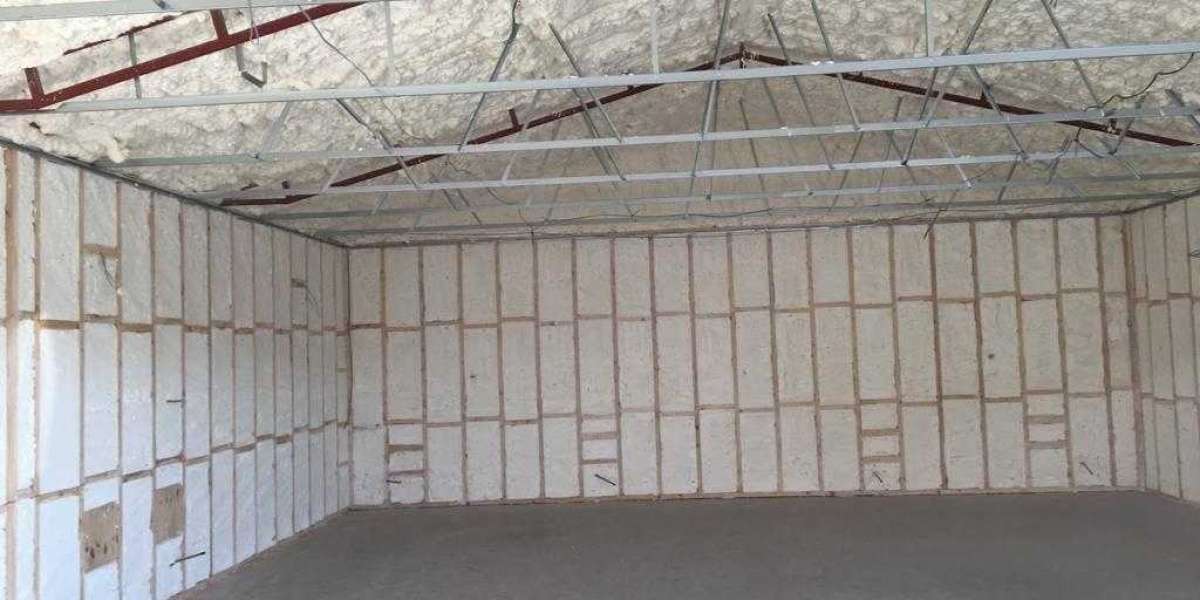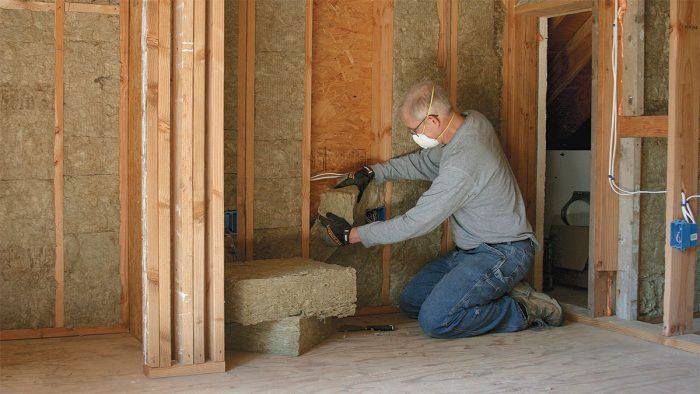Proper farm insulation is not just about temperature control; it plays a pivotal role in enhancing the long-term efficiency of your operations. When your farm is well-insulated, you save on energy costs, protect your equipment, and provide a more comfortable environment for livestock and crops. Insulation also helps minimize waste and improves overall sustainability.
This article explores why insulating your farm is essential, with a detailed breakdown of types of insulation, factors to consider, and the long-term benefits you can expect. Whether you're looking to reduce heating costs or enhance the productivity of your farm, insulation is a crucial step.
Types of Farm Insulation
Farm insulation materials vary based on application, climate, and budget. Here are the most common types:
1. Spray Foam Insulation
Spray foam insulation provides a strong barrier against heat transfer. It expands to fill gaps and cracks, providing both insulation and air sealing. This makes it especially effective in barns, sheds, and other farm buildings.
Pros of Spray Foam | Cons of Spray Foam |
Excellent air sealing | High upfront cost |
Expands to fill gaps | Requires professional installation |
Long-lasting durability | Potential for off-gassing during application |
2. Fiberglass Insulation
Fiberglass insulation is a popular, cost-effective option for farm buildings. It consists of tiny glass fibers that trap air, reducing heat loss. It’s most commonly used in walls, attics, and ceilings.
Pros of Fiberglass | Cons of Fiberglass |
Cost-effective | Can sag over time |
Easy to install | Susceptible to moisture damage |
Fire-resistant | Requires protective gear during installation |
3. Mineral Wool Insulation
Mineral wool is a durable and moisture-resistant material made from basalt or slag. It’s ideal for areas where fire resistance is a priority, such as near heating units or in areas exposed to livestock waste.
Pros of Mineral Wool | Cons of Mineral Wool |
Fire-resistant | More expensive than fiberglass |
Moisture-resistant | Heavier and harder to install |
Excellent soundproofing | Not as readily available |
4. Blown-In Insulation
Blown-in insulation is often used for attics and wall cavities. It is installed by blowing loose-fill material into spaces using specialized equipment. This type of insulation is ideal for hard-to-reach spaces.
Pros of Blown-In | Cons of Blown-In |
Quick and easy installation | Settles over time, reducing efficiency |
Effective for irregular spaces | Requires professional equipment |
Can be made from eco-friendly materials | Can be costly in larger areas |
Things to Consider Before Making a Decision
Before choosing the right insulation for your farm, consider the following:
Climate and Location
- Cold climates will benefit from thicker insulation and materials with higher R-values, such as spray foam or fiberglass.
- Hot climates may require reflective insulation to keep temperatures manageable in barns and storage units.
Farm Size and Structure
- Smaller barns and sheds may only need basic insulation, while larger, multi-use structures may require more complex insulation solutions.
- Insulation needs may differ based on the type of farm operation, such as livestock, crop production, or storage facilities.
Budget and Cost-Efficiency
- Upfront costs for spray foam and other high-performance insulations can be significant. Consider the long-term savings in energy costs and equipment protection.
- Compare the effectiveness of different materials with the costs associated with installation and maintenance.
Installation and Maintenance
- Professional installation may be required for materials like spray foam and blown-in insulation. Assess your ability to manage the installation and any future maintenance.
Common Questions
How long does insulation last on a farm?
Most insulation types last 20-30 years with proper maintenance. Spray foam insulation can last even longer if installed correctly.
Does insulation protect farm equipment?
Yes, insulation can significantly extend the life of farming equipment by protecting it from temperature fluctuations and moisture buildup.
Can insulation improve livestock comfort?
Insulated barns and sheds provide a more stable environment for livestock, reducing the stress caused by extreme temperature changes.
What is the best insulation for high-moisture areas?
Mineral wool and spray foam are highly resistant to moisture, making them ideal for areas prone to high humidity or water exposure.
Bonus Tips for Insulating Your Farm
1. Consider Combining Insulation Materials
Sometimes, combining different materials like spray foam for air sealing and fiberglass for thermal insulation provides the best of both worlds—energy efficiency and cost savings.
2. Insulate Early
Insulate new buildings or structures before they are fully operational. Retrofitting existing structures is often more expensive and complicated than insulating from the start.
3. Pay Attention to Air Sealing
Maximizing air sealing is just as important as adding insulation. Drafts can reduce the effectiveness of your insulation, so be sure to seal gaps around doors, windows, and seams.
Technical Specifications for Farm Insulation Materials
Insulation Type | R-Value per Inch | Material Cost (per sq ft) | Lifespan | Fire Resistance |
Spray Foam Insulation | R-6.5 - R-7 | $0.50 - $1.00 | 20+ years | High |
Fiberglass Insulation | R-3.0 - R-4.0 | $0.30 - $0.80 | 15-25 years | Moderate |
Mineral Wool | R-3.0 - R-4.5 | $0.40 - $1.20 | 20+ years | Very High |
Blown-In Insulation | R-3.5 - R-4.5 | $0.50 - $1.00 | 15-20 years | Moderate |
FAQ
What’s the best insulation for a farm barn?
Spray foam insulation is the best option for barns due to its superior air sealing properties and long-lasting performance.
Is it worth investing in high-performance insulation for a farm?
Yes, the long-term savings on heating and cooling costs, combined with improved equipment and livestock protection, make high-performance insulation a worthwhile investment.
How can insulation reduce energy costs on a farm?
Insulation reduces the amount of energy needed to heat or cool farm buildings, leading to lower utility bills and more efficient use of energy.
Can insulation help with moisture control in barns?
Yes, materials like mineral wool or spray foam prevent moisture buildup, which can protect both the structure and livestock from humidity-related issues.
Make the Right Decision
Insulating your farm is an investment in long-term efficiency. It provides immediate benefits like cost savings and protection, but its true value shines over time. Carefully consider your farm’s specific needs, climate, and budget to choose the right insulation material. Whether you choose spray foam, fiberglass, or another type, the key is to focus on durability, performance, and long-term cost savings.
Reviewer:
Jack Parker, a spray foam professional with 7 years of experience, reviewed this post and helped improve sections dealing with brand clarity and customer communication.






